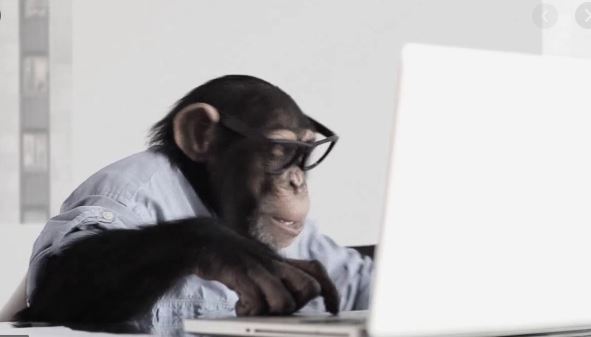LAZY LIBERAL JOB-POCALYPSE: Trump to end “virtual” fake-work-world thousands of do-nothing Liberals have milked throughout 4-year Covid scamdemic
01/03/2025 / By S.D. Wells

- President-elect Donald Trump plans to end work-from-home policies for federal employees, requiring approximately 2.3 million workers to return to their offices.
- This shift is part of a broader trend as major corporations like Amazon, Boeing, Disney, and Apple are also mandating employees’ return to the office.
- The reasons cited for this change include perceived lack of productivity among remote workers, concern over “job stacking,” and the use of gadgets like the jiggle mouse to fake productivity.
- Employers argue that in-person collaboration and better communication are necessary for fostering a strong company culture and boosting productivity.
- The return-to-office mandates have met with mixed reactions, with some employees facing concerns over costs, childcare, and loss of flexibility, while others welcome the opportunity for in-person collaboration.
President-elect Donald Trump is set to end the era of work-from-home policies for federal employees, signaling a return to the office. This decision comes as major corporations across the country are already taking the initiative to bring their employees back to the traditional workplace, effectively putting an end to the flexibility that remote work offered during the pandemic.
The scale of Trump’s announcement is staggering as approximately 2.3 million federal employees, who shifted to remote work during the pandemic, will now be required to return to their desks by the President-elect’s mandate. This move has been met with mixed reactions, with some praising the decision as a step toward better collaboration and productivity, while others view it as an unnecessary overreach.
One of the key reasons cited for this shift is the perceived lack of productivity among remote workers. The issue of “job stacking”—where employees take on multiple jobs simultaneously—has become a significant concern. According to Cyndi Gave, a leader at The Metiss Group, workers were often found to be “task focused,” completing their assigned work in less than 40 hours and then taking on additional jobs to maximize their earnings. Gave said, “If you’re working multiple full-time jobs, you can’t tell me you’re putting in full-time work.”
Welcome to the end of the lazy-Liberal job-pocalypse and the jiggle mouse – looks like 2.3 million government workers will have to do actual work again to keep their job
However, this isn’t just about job stacking. The use of gadgets like the jiggle mouse, which moves the mouse automatically to make it appear that someone is actually paying attention when they’re not, has become a common tool among those seeking to exploit the flexibility of remote work. Some believe this trend is particularly prevalent among those in the Democratic or Liberal camp, who are allegedly upset at Trump’s win. According to Senator Joni Ernst, “bureaucrats relaxing in bubble baths, playing golf, getting arrested, and doing just about everything besides their jobs” are among those taking advantage of remote work policies.
The shift toward in-person work is not limited to the federal government. Companies like Amazon, Boeing, Disney, and Apple have already been leading the charge to bring employees back to the office. Amazon, in particular, has announced that it will require its 350,000 employees to return to the office five days a week starting January 2, 2025. This decision is part of a broader trend, with a KPMG report showing that 83 percent of U.S. CEOs now expect a full return to the office within the next three years.
Employers argue that in-person collaboration is essential for fostering a strong company culture, improving communication, and boosting productivity. As Kevelyn Guzman, regional vice president at Coldwell Banker Warburg, put it, “Returning to the office feels a bit like reuniting with an old friend you forgot how much you missed.” However, the pushback from employees has been significant, with concerns over costs, childcare, and flexibility.
The legal implications of return-to-office policies are also coming into focus. Scott Herndon, an employment attorney in Berkeley, California, noted that employers can indeed mandate a return to the office, and employees can be fired for non-compliance. This has left many workers wondering about their rights and the future of remote work.
As the dust settles on this significant shift, it’s clear that the landscape of work is changing once again. While the benefits of in-person collaboration and a stronger corporate culture are undeniable, the transition will undoubtedly be a challenge for both employees and employers alike. Whether this move will ultimately lead to a more productive and engaged workforce or simply fuel the ongoing debate about work-life balance, remains to be seen.
Will the jiggle mouse find a new home on the shelf, or will it continue to be a tool for those who seek to exploit remote work policies? Only time will tell. But for now, the call to return to the office is clear, marking a new chapter in the evolving landscape of work in America. Keep your truth news in check by adding preparedness.news to your favorites list and tuning in daily for updates on real news about what the scrambling, panicking Dems and Libs will do next to save themselves, including “drowning” the rest of us.
Sources for this article include:
Submit a correction >>
Tagged Under:
big government, Collapse, fake jobs, jiggle mouse, jobs, money supply, pandemic, pensions, remote end, remote jobs, remote work, risk, Trump, virtual jobs, virtual work
This article may contain statements that reflect the opinion of the author
RECENT NEWS & ARTICLES
COPYRIGHT © 2017 RISK NEWS




















